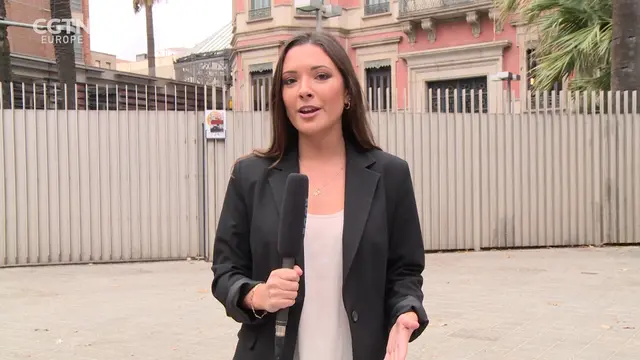After more than a decade of negotiations and missed deadlines, the World Trade Organization (WTO) has finally achieved a breakthrough in its marathon trade- liberalization negotiations as trade ministers clinched a deal after a prolonged meeting on the Indonesia resort island of Bali.
The Bali Package marks a concrete step forward in the Doha Round talks, which were launched in 2001 with an aim to help poor nations overcome barriers in global trade and prosper through the free flow of goods.
The last-minute deal came after tense overnight talks, drawing out the WTO's 9th Ministerial Conference from its scheduled end on Friday afternoon into Saturday morning.
"For the first time in our history, the WTO has truly delivered, " said WTO director-general Roberto Azevedo, who appeared emotional at closing ceremony of the meeting.
The "full Bali Package" comprises 10 documents, covering issues designed to streamline trade, to allow developing countries more options on food security, to boost trade and development for developing countries and the least developed countries (LDCs).
The package would boost the world economy by the equivalent of 1 trillion U.S. dollars a year, equivalent to the GDP of Indonesia, said Azevedo, who had earlier urged ministers to show "political will and engagement" in Bali.
The success had repeatedly appeared elusive before and during the meeting due to lingering impasses that seemed almost impossible to resolve.
One of the major deadlocks was India's firm insistence on maintaining its food security program with the argument that India and other developing countries should be exempted from WTO rules on farming subsidies. This was opposed by the developed countries group, which was concerned that large stockpiling and excessively high subsidies would distort international grain prices.
"For India, food security is non-negotiable," Indian Minister of Commerce and Industry Anand Sharma had stated during the meeting.
He insisted that historical imbalances in trade rules, such as the Agreement on Agriculture, had to be corrected to ensure a fair and equitable multilateral trade regime.
Facing India's resolution, intense negotiations led to a compromise, with delegates agreeing on an interim solution on food security issues until a permanent solution is found, so that developing countries would not be challenged through the WTO Dispute Settlement mechanism.
Meanwhile, they must ensure that such measures do not distort trade or adversely affect the food security of other members. In return, India agreed to a new agreement on trade facilitation, which is about cutting red tape and streamlining customs and port procedures.
Other deals also included a tariff quota administration, improved market access for cotton products from LDCs, and duty- free, quota-free access for least developed countries to export to richer countries.
Another last-minute hurdle emerged as four Latin American members unexpectedly rejected the package due to removal of a paragraph regarding the roll back of the U.S. trade embargo against its Cuba, which prolonged the meeting by several hours.
Officials were unanimous in claiming the Bali Package had restored some confidence to the WTO's multilateral trade system and the Doha Round, especially at a time of burgeoning plans for regional or bilateral free trade agreements outside the WTO framework, such as the Trans Pacific Partnership and the Trans- Atlantic Trade and Investment Partnership.
"Throughout the development here in Bali, we have reaffirmed the WTO's role as the permanent forum of multilateral trade negotiations," said Gita Wirjawan, chairman of the ministerial conference and Indonesia's Trade Minister.
However, the deal known as the Doha-lite is only part of the Doha Round talks, and its completion has lead the WTO into a post- Bali period, turning a page in its long pursuit of a successful multilateral trade system.
The decisions made in Bali are "important stepping stones towards the completion of the Doha Round," which will not be " something that we will conclude quickly," said Azevedo.
"This package is not an end, it is a beginning."
A clearly defined work program on the remaining Doha Development Agenda issues would be prepared within the next 12 months, focusing particularly on agriculture, development and LDC issues, according to a ministerial declaration.
China, for its part, has reiterated its stance as a firm supporter and important contributor to the multilateral trade system, and would play a more active role in the WTO system by further opening up its market, said Chinese Commerce Minister Gao Hucheng at the conference.
During the Bali meeting, China announced it would expand its cooperation program with the four major African cotton producing countries and extend its program of facilitating WTO accession of least-developed countries for another year.
 简体中文
简体中文

